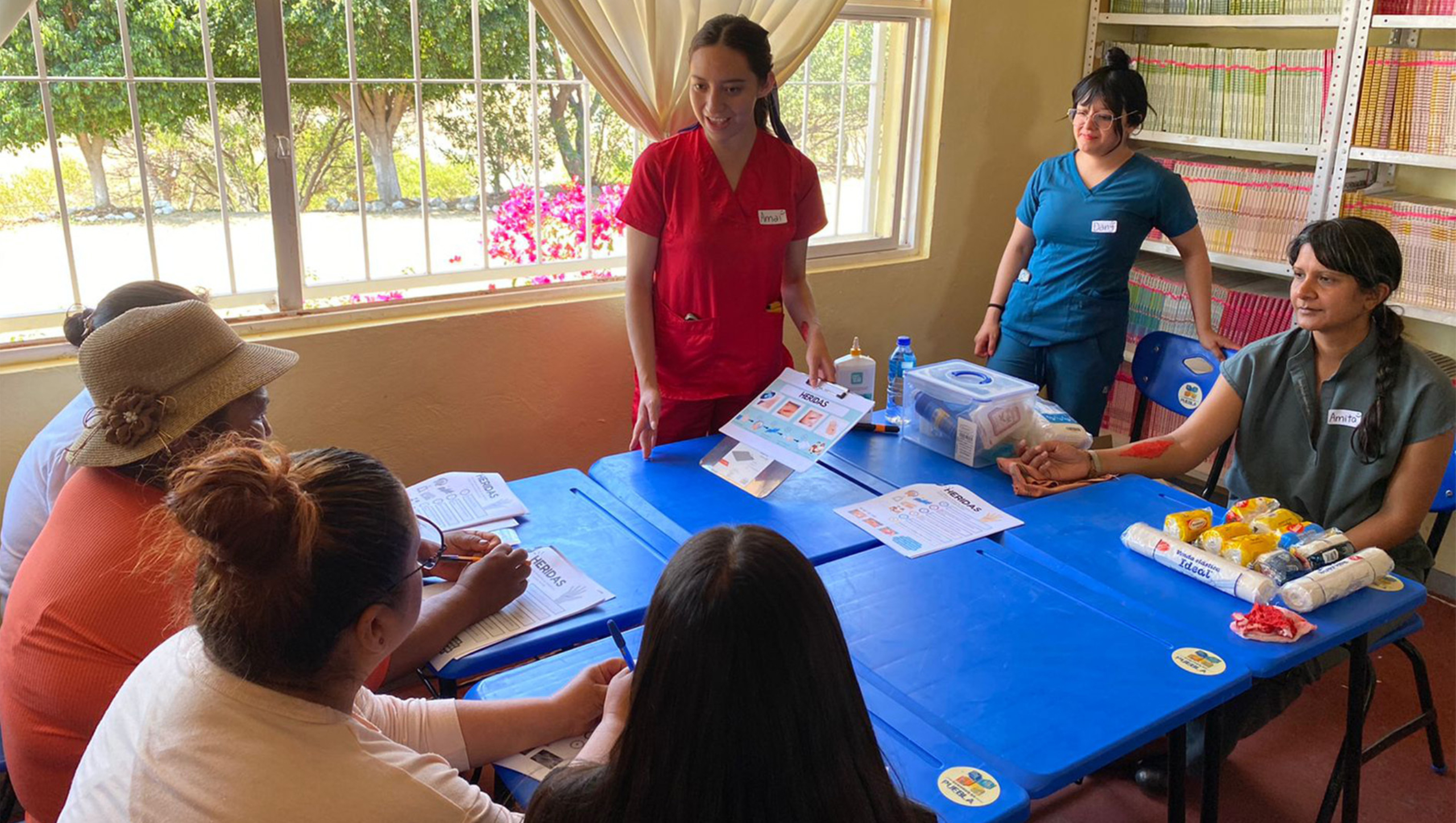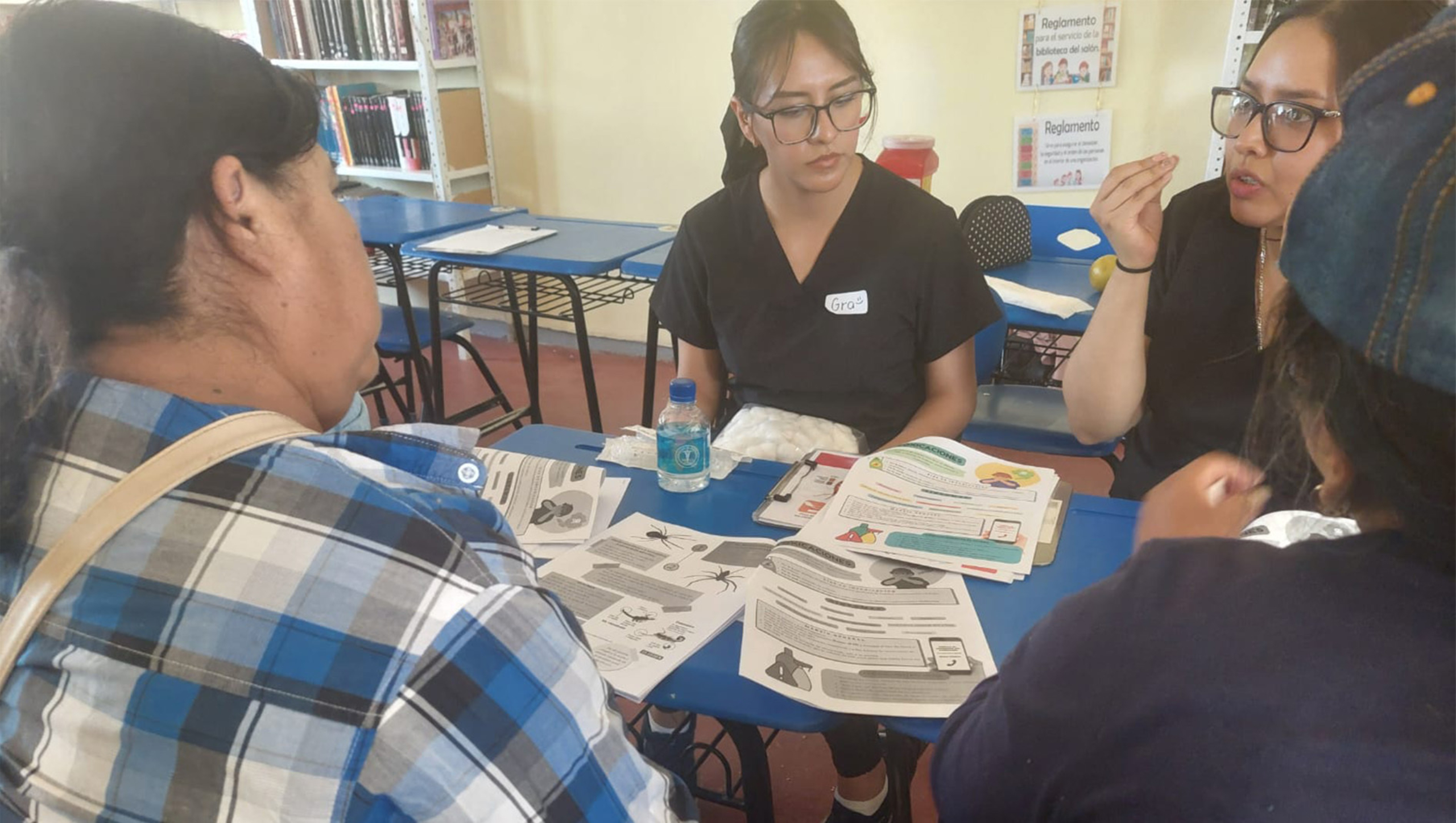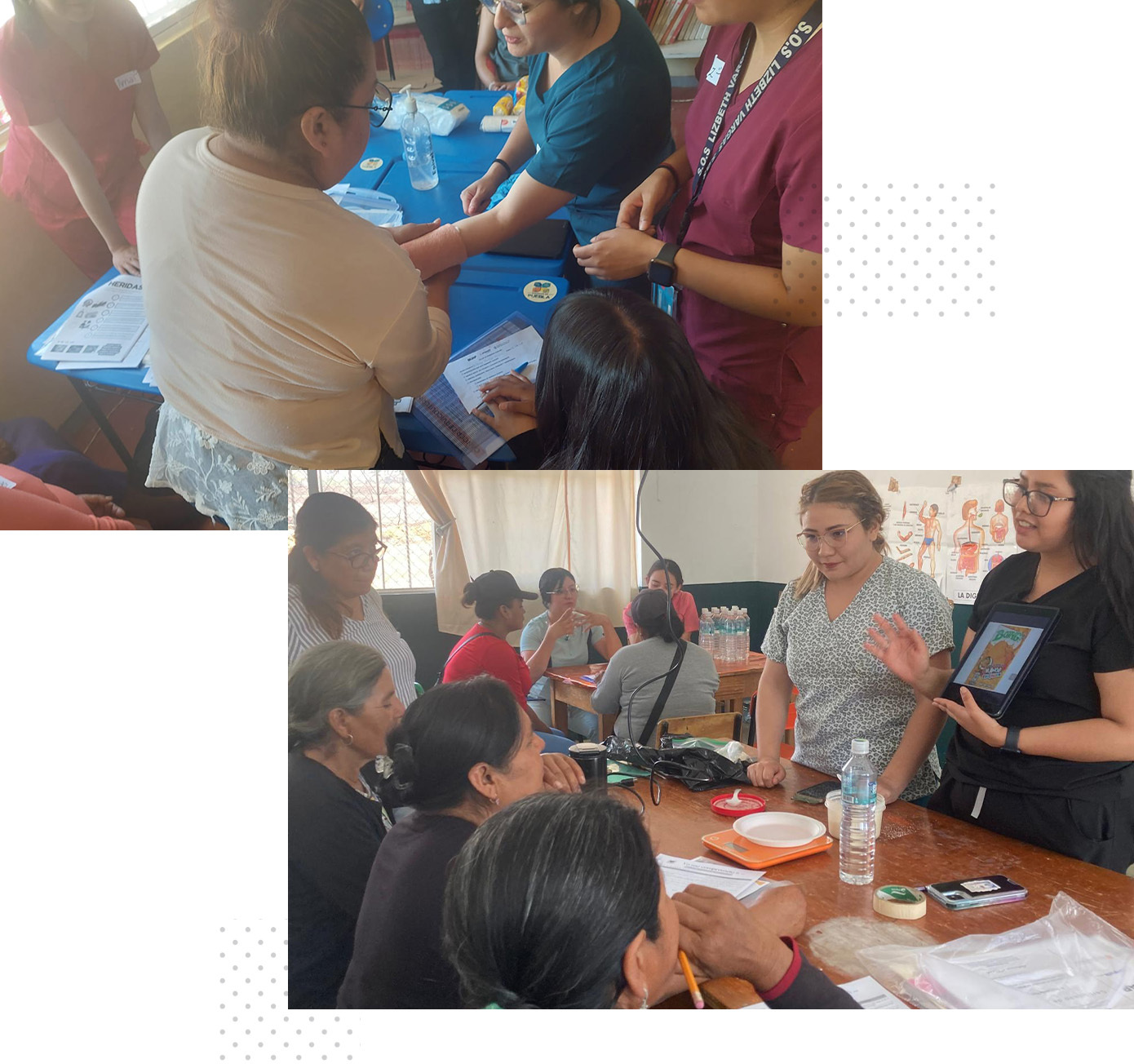Note: The names of the health promoters in this story have been changed to maintain confidentiality.
In a baseball cap and T-shirt, Martina could easily pass for a patient or parent amid the white coats and scrubs at the March Jornada Integral de Salud in rural San Francisco Xochiteopan’s community auditorium. But empowered with her recent training and wide smile, she serves as an important and revitalized link in the health system of Puebla, Mexico.
As local patients, medical students, faculty and clinicians swirl busily around her through medical consults, physical therapy sessions, point-of-care laboratory testing and health promotion workshops with children in the Jornada’s tented stations, Martina takes a moment to discuss her new role as a “promotora comunitaria de salud,” or community health promoter.

Known in Mexico as “pasantes,” medical students in their social service year lead hands-on trainings with commmunity health promoters.
“Before, there were nurses who used to come to give us specific health trainings, but that stopped,” Martina said. “Communication and information regarding health care have been lost. Now that I have been invited to become a community health promoter, they are giving me this information again so that I can communicate with other people, and I have liked it a lot.”
Isabella, another community health promoter in Colonia Agrarista, a community of just under 300 residents and a small health post staffed by a health aide, says that her young granddaughter, who experienced a recent health concern, was her inspiration to take the training: “Thankfully nothing happened to my little girl, but I want to be able to help other children.”
Isabella and Martina note the challenges faced by patients in rural Puebla and the value of being a promotora de salud to address those needs. “We are training to learn more about other diseases that we don’t know about yet, and also about health services,” Martina said. “Because sometimes it is difficult for us to follow up on diseases due to economic issues and transportation.”
“I feel like I’m learning many things to be able to discuss with the community and support the doctors,” Isabella said. “I hope they continue to come and that they don’t forget us.”
Health Promoters Making an Impact
Under the overarching AMPATH/MAPAS México partnership, the promotoras initiative launched in 2023 with $500K in funding support from Astellas Pharma Inc., in alignment with the company’s “Access to Health” initiative. This two-year project in Puebla implements a community-based model for health literacy and early detection of high-burden breast, cervical and prostate cancers.

Pasantes and health promoters cover first-aid skills, community health and more during outreach events.
“We see this grant initiative as a first step in a long-term strategy to engage community members to serve as key members of the AMPATH/MAPAS team,” said Rebecca Cook, M.D., AMPATH/MAPAS México’s clinical leader and project co-lead. “Through culturally appropriate peer education, promotoras are reaching neighbors about cervical and breast cancer to also improve screening, linkage to services, and follow-up for chronic diseases.”
Led by their home institution and Cook, medical students in their social service year who have completed classroom and clinical training — known as “pasantes” in Mexico — have so far trained 26 promotoras on cancer prevention and early detection.

They have also transferred hands-on skills in health promotion and first aid based on priorities shared by the promotoras. Altogether, their impact is already significant: In their first six months, the new promotoras collectively completed 119 home visits and reached 219 women, 164 men and 113 children with health education and promotion, referring 32 individuals to the clinic for health prevention services such as cervical cancer screening, vaccination or treatment for acute and chronic medical conditions.
The promotoras also support multidisciplinary health outreach events such as “Jornadas de Salud,” events in which Isabella and Martina set up community space, prepare lunch for clinical volunteers, welcome patients and serve as informational guides for community members in attendance.
Martina says that while she looks forward to putting her training into practice for others in Puebla, her personal health has also since been positively impacted by her new role as a promotora comunitaria de salud. “For example, I just got my pap smear, so I am more aware of the prevention of certain diseases,” she said. “There were things I didn’t know in depth, or what they were all about. Now that I know them, I can communicate them to neighbors and relatives.”
About AMPATH/MAPAS México
AMPATH/MAPAS México is a collaboration between the Benemérita Universidad Autónoma de Puebla Facultad de Medicina, which is the largest public medical school in Puebla, and The University of Texas at Austin’s Division of Global Health at Dell Medical School. Together with the Mexican public health care delivery sector, communities and the AMPATH network of academic health centers around the world, they apply a model to improve the health and well-being of underserved communities, strengthen training and advance the research missions of all partners.